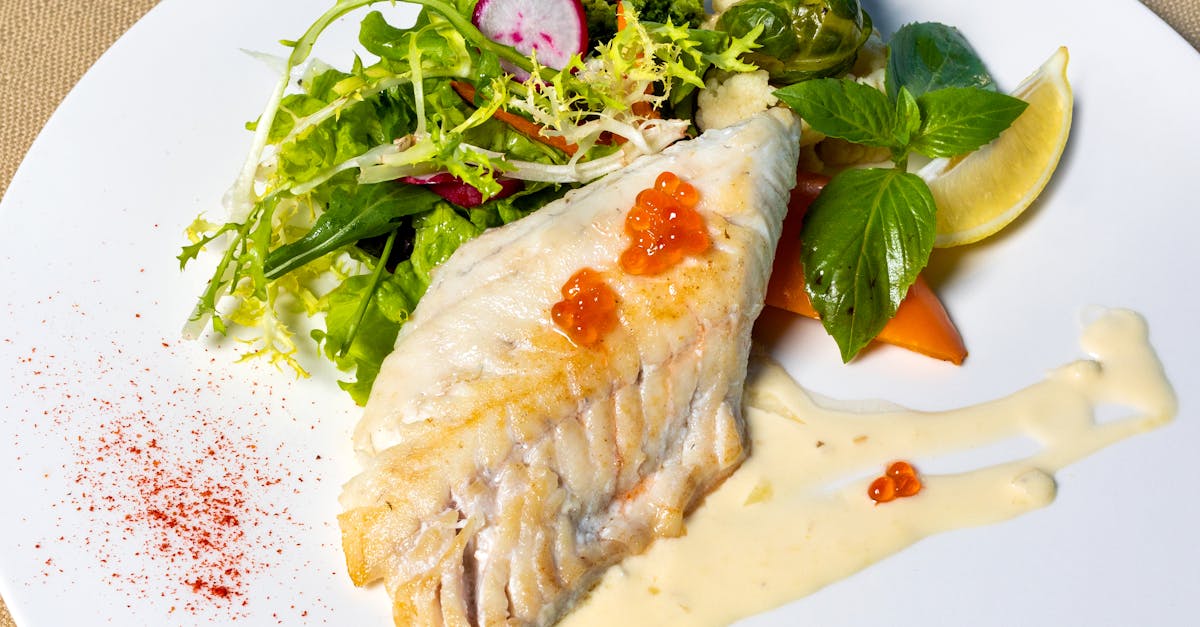10 best certifications for sustainable frozen haddock fillet

Friend of the Sea Certification
This certification aims to promote sustainable fishing practices and the conservation of marine habitats. It evaluates fisheries based on their environmental impact, including the method of catch, and non-target species bycatch. Any operation seeking the certification must comply with strict criteria that ensure minimal ecological disruption and responsible resource management. The programme also encourages economic viability, which supports the livelihoods of local fishing communities.
Achieving this designation signifies a commitment to sustainability and aligns with growing consumer demand for responsibly sourced seafood. Products carrying the Friend of the Sea label can provide assurance to consumers that their purchases contribute to environmental preservation. This certification not only benefits the marine ecosystem but also enhances the marketability of frozen haddock fillets that meet these stringent guidelines.
Key Criteria for Friend of the Sea
Certification from Friend of the Sea relies on a rigorous assessment of several key criteria, aimed at promoting sustainable fishing practices. Firstly, it evaluates the fishing methods used, ensuring they minimise environmental impact. Gear types, bycatch rates, and the management of fish stocks all come under scrutiny, as these factors significantly influence the health of marine ecosystems.
Another crucial aspect is the preservation of habitats. The certification process examines whether fishing activities cause damage to critical marine environments, such as coral reefs and seabeds. A commitment to responsible sourcing and adherence to international environmental regulations are also vital components. By meeting these criteria, fisheries demonstrate their dedication to sustainability and the long-term viability of fish populations.
Best Aquaculture Practices (BAP) Certification
The Best Aquaculture Practices (BAP) certification is a comprehensive programme designed to ensure sustainability within aquaculture operations. This certification encompasses a variety of standards that cover environmental responsibility, social ethics, and food safety. By adhering to BAP guidelines, producers can demonstrate their commitment to maintaining responsible farming practices while also preserving aquatic ecosystems.
Receiving BAP certification involves rigorous assessments of farms, processing plants, and hatcheries. Each facility must meet specific criteria across various domains including water quality management, responsible feed sourcing, and fish health and welfare. The certification enhances consumer confidence, allowing buyers to make informed choices while supporting sustainable seafood production initiatives.
BAP Standards and Their Importance
The Best Aquaculture Practices (BAP) certification is vital for ensuring that fish farming operates sustainably and responsibly. It encompasses a range of environmental, social, and animal welfare standards that must be met by aquaculture farms. These standards include water quality management, habitat protection, and responsible feed sourcing. This holistic approach not only promotes the health of ecosystems but also supports the livelihoods of those who depend on fishing and aquaculture.
By adhering to BAP standards, producers demonstrate a commitment to sustainable practices that minimise their environmental footprint. These guidelines help reduce pollution, promote biodiversity, and maintain fish health. Consumers can feel confident that products bearing the BAP label come from farms prioritising responsible practices. In an era where sustainability is paramount, BAP certification offers a clear pathway for aquaculture operations to align with global environmental goals.
Dolphin Safe Certification
This certification aims to promote sustainable fishing practices that protect dolphin populations. It ensures that the methods used in capturing marine life do not inadvertently harm or kill dolphins. By adopting such practices, fisheries contribute to the preservation of marine biodiversity and the overall health of ocean ecosystems.
To obtain the Dolphin Safe certification, fishing operations must adhere to specific criteria that limit bycatch. This includes the use of technology and techniques designed to minimise the incidental capture of non-target species. As a result, consumers can make informed choices while supporting fisheries committed to responsible fishing methods.
Focus on Bycatch Reduction
Bycatch reduction is a pivotal aspect of sustainable fishing practices. It involves implementing measures that significantly minimise the unintended capture of non-target species during fishing operations. Many fisheries are adopting techniques such as selective gear types and specific fishing times to address this issue. These strategies not only help protect marine biodiversity but also ensure the long-term viability of fish populations.
Efforts to reduce bycatch contribute to healthier ocean ecosystems. A diverse marine environment is essential for maintaining balance within aquatic habitats. Fishery certifications that emphasise bycatch reduction encourage responsible practices among fishers and promote awareness about the ecological implications of their activities. Stakeholders in the seafood industry are increasingly recognising the importance of these efforts in showcasing their commitment to sustainability.
FAQS
What is the Friend of the Sea certification?
The Friend of the Sea certification is a global standard for the sustainable management of fisheries and aquaculture, ensuring that seafood products are sourced from environmentally friendly practices.
What are the key criteria for obtaining the Friend of the Sea certification?
Key criteria for the Friend of the Sea certification include sustainable fishing practices, minimal impact on the ecosystem, compliance with international regulations, and a commitment to continuous improvement in sustainability efforts.
What does the Best Aquaculture Practices (BAP) certification entail?
The Best Aquaculture Practices (BAP) certification focuses on ensuring responsible farming practices, including environmental responsibility, social accountability, and food safety throughout the aquaculture supply chain.
Why are BAP standards important for seafood sustainability?
BAP standards are crucial for seafood sustainability as they provide a comprehensive framework that promotes responsible farming practices, protects the environment, and supports the welfare of workers in the aquaculture industry.
What is the purpose of the Dolphin Safe certification?
The Dolphin Safe certification aims to ensure that tuna fishing practices do not harm dolphins, promoting responsible fishing methods that minimise bycatch and protect marine biodiversity.
Related Links
Historical overview of fishing practices for haddockWhy traceability is crucial in the supply chain of frozen haddock
Roundup of the best practices in sourcing frozen haddock fillet